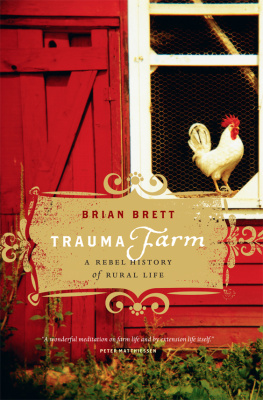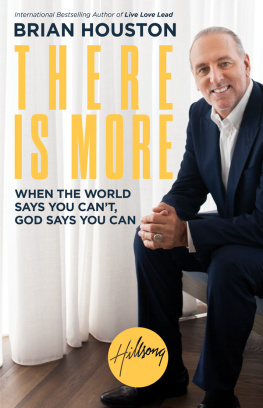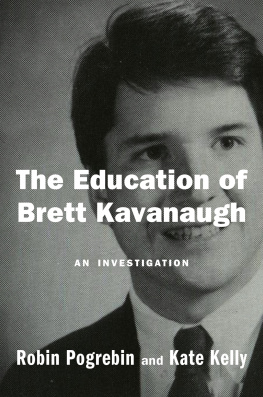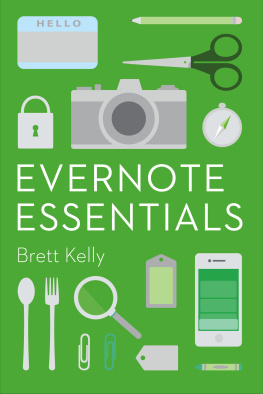TUCO
The Parrot, the Others,
and a Scattershot World
A Life with Birds
BRIAN BRETT
Copyright 2015 by Brian Brett
All rights reserved. No part of this book may be reproduced, stored in a retrieval system or transmitted, in any form or by any means, without the prior written consent of the publisher or a licence from The Canadian Copyright Licensing Agency (Access Copyright). For a copyright licence, visit www.accesscopyright.ca or call toll free to 1-800-893-5777.
Greystone Books Ltd.
www.greystonebooks.com
Cataloguing data available from Library and Archives Canada
ISBN 978-1-77164-063-3 (cloth)
ISBN 978-1-77164-064-0 (epub)
Editing by Nancy Flight
Proofreading by Stefania Alexandru
Cover design by Nayeli Jimenez
Cover photograph by Sharon Doobenen
We gratefully acknowledge the financial support of the Canada Council for the Arts, the British Columbia Arts Council, the Province of British Columbia through the Book Publishing Tax Credit, and the Government of Canada through the Canada Book Fund for our publishing activities.
For Nancy Flight
FOREWORD
I WAS BORN into story. I didnt know it at the time, as blissfully unconscious of the world as any newborn could be, and probably more distracted by the bright lights and the slap that started me breathing. It was only years later that my mother suddenly blurted out what the doctor told her shortly after I was born: Youre going to have to do something about that boy. This struck me as a tactless thing to say to the mother of a new child, even if it was mixed in with the usual congratulations and smiles from the nurses. At least he recognized I was a boy.
More than six decades later, I now wonder if I was already listening to stories in my mothers womb. Although I had the misfortune to be born strange with my mysterious micro-genitals, I had the luck of a mother with a mind that watched the world like a hawk and a father who could fill any empty space with his tall tales.
You learn to tell stories by listening to them, and my father was an endless story. A man who could overwhelm the silence of death, whether physical or psychological. He wasnt pleased with silence, except when he was still-hunting in the forest. His world was always alive. Born within the sound of Bow Bells (which made him Cockney), he lost his left leg at the age of seventeen, when he smashed up the stolen car he was driving. He became a one-legged bootlegger and potato peddler who could talk himself into trouble and out of trouble with equal ease. He could inhale silence and spit out all of its stories. He could walk into a room full of Italians and, by the time he left, be regarded as more Italian than the Italians.
Naturally, he was disappointed with his mutant child, born with a rare genetic disorder that caused me to present as intersex, without any apparent testicles at all, but that didnt stop him from including me in the mythology of our lives, and my greatest memories come from spending so much of my childhood on the road with him and his trucks full of potatoes and apples and junk collected for resaleevery old truck unique and ready for mysteries. It was a road carnival, and he was the ringmaster.
I grew up dancing at the great feast of the world; then suddenly the hammer of life would smash me, and then the dance would begin again, with me a little groggy, yet still kicking, defiant. I never knew when the pain would strike or the laughter or the beauty It was only many years later that I realized how much this attitude represented the play of entropy in our world, but more about that later. There were imaginary snakes under the bed and frosty morning fields and beautiful friends, real rapists and endless bullying, and all the mysteries possible in the running waters of my childhood imagination fuelled by the great talker that was my father in his glory days, and the yakker I became. My actual syndrome wasnt fully diagnosed until I was twenty, and by then the physical and emotional damage had been done. I had seen beauty, and I had been stepped on by beauty.
Later, I would write poems about the painful ice in my bones, the weeks of headaches caused by my syndrome, and the whip-like scorn of my community. I also had the opportunity to witness or hear the stories of Othersa philosophical term that refers to outsiders, outliers, foreignersand even sometimes participate with them in those tales while traversing the enormous, lush, thriving swamp that is life on this planet.
I learned that Others were not only me but birds, tribes, the religious and the atheists, every colour of our skins, including the childhood friend who vomited all over the classroom flooreven the teacher laughed at the poor kid and the stink of his troubled guts.
My father took me to the Native reservations and the Doukhobor camps and, being a trusting man, dumped me with the local families he hardly knew while he went about peddling his vegetables, and then, later, collected me, dazzled and in awe of these amazing people. And so Im grateful to the tribes of the world that raised me, took me under their wing, in my homeland when I was a child and when I found my own road latera world wealthy with storiesdoggerel Yukon poets, Cambodian tuk-tuk drivers, Haida and Salish tale-tellers, Sikh farmers, Mayan women, German potato growers, lovers of every kind. They were all talkers.
When you are born strange, you learn to see the strangeness in the world. For years, I didnt even know I was strange, but gradually I became the one pointed out and scorned, often attacked, though I didnt understand why at the time. The children could smell the Other in me, the way a parasitic cowbird chick will peck to death its fellow nestlings or push them out of nests. Of course, I learned to be one of those who quickly scooped up ill or traumatized nestlings and took them home, only to watch them die because I didnt know how to care properly for them like a real bird mother, not in those days. But I already knew my life would be a life lived with birds.
I learned how to behave like an Other. I dwelt in the cave behind my eyes, watching the miracle of the world unfolda cold-eyed hawk. This cave state is common, according to the stories of other outcasts and the cave tales of mystics and seers and philosophers like Plato.
Because I was an Other I developed my affinity with birdsthey had the same hard, weird eye, only it was more visible. Although it began with that identification with their eyes, our relationships grew in many directions. I think Ive always been listening to their voices, especially once I recognized they were also treated as Others.
When I reached my teen years my syndrome accelerated and the chemical inferno of my androgyny swept through me. For most of my life, I only discussed my Kallmann syndrome with a few very close friends. It was my secret shame, and it took me decades to recognize there was no shame in any accident of birth, no shame that I looked more like a girl than a boy, or that my bones were already crumbling from osteoporosis while I was still a teenager.
A little more than a decade ago, in my fifties, I went public with my story. It gushed out in a short memoir; Uproars Your Only Music, a diptych of prose and poetry, the prose designed to echo the story told in the poetry half of the book. I had no idea where the memoir maelstrom would lead me when I wrote it.
Instead of wrapping up those early years of anguish, the book opened the floodgates of memory, unleashing an unlikely non-linear trilogy of independent memoirseach a different way of looking at the world that birthed and kept alive this odd creature. The second book, Trauma Farm, is a memoir of my life lived locally in our community, on a small mixed farm. Tuco was born out of recognizing I was still suffering from the blows of my childhood and how inspired I was by birds. It gathers up the loose threads of the two earlier memoirs and travels in a third direction. I guess Tuco could be called an adab, an Arab form of memoir thats designed to be pleasing, diverting and titillating while also educational. A meditation on a life.







![Simon Brett [Simon Brett] - Mrs., Presumed Dead](/uploads/posts/book/142159/thumbs/simon-brett-simon-brett-mrs-presumed-dead.jpg)
![Simon Brett [Simon Brett] - Mrs. Pargeter’s Pound of Flesh](/uploads/posts/book/142156/thumbs/simon-brett-simon-brett-mrs-pargeter-s-pound.jpg)
![Simon Brett [Simon Brett] - Mrs. Pargeter’s Point of Honour](/uploads/posts/book/142155/thumbs/simon-brett-simon-brett-mrs-pargeter-s-point.jpg)
![Simon Brett [Simon Brett] - Mrs. Pargeter’s Plot](/uploads/posts/book/142154/thumbs/simon-brett-simon-brett-mrs-pargeter-s-plot.jpg)
![Simon Brett [Simon Brett] - Mrs. Pargeter’s Package](/uploads/posts/book/142153/thumbs/simon-brett-simon-brett-mrs-pargeter-s.jpg)
![Simon Brett [Simon Brett] - A Nice Class of Corpse](/uploads/posts/book/142089/thumbs/simon-brett-simon-brett-a-nice-class-of-corpse.jpg)
